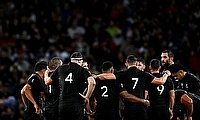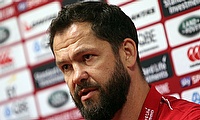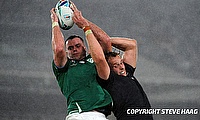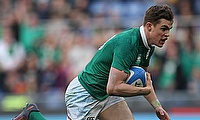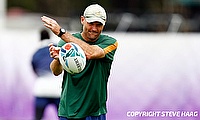Ireland pulling the punches for the Northern Hemisphere
Regardless of results to come this weekend, there can be no doubt that Ireland have ‘won’ the autumn amongst the northern hemisphere nations.
Highly impressive wins over South Africa and Australia have been the highlights for Joe Schmidt’s men, but the win over Georgia was also impressive in its own way, helping Ireland’s Rugby World Cup build-up immeasurably in regards to depth, and more importantly, confidence in that depth.
Ireland’s unblemished autumn began with a 29-15 victory over South Africa, who, admittedly, could have been accused of taking the game lightly, but it should not detract significantly from the efficiency of Ireland’s performance. Putting aside the match against Georgia for the moment, Ireland followed this up with a 26-23 win over Australia, a match that tested them for a full 80 minutes, a test that Ireland and Schmidt passed with flying colours.
Success in rugby so often comes as a result of a tactically aware game-plan, polished execution from the players and the presence of savvy leaders on the pitch, who can make adjustments when and if they are needed. Ireland’s November success can be attributed entirely to these three factors. In fact, it’s a real shame we aren’t looking forward to an Ireland versus New Zealand test match in Dublin this weekend.
The aforementioned game-plan was executed superbly against South Africa, as Ireland, without Cian Healy, Iain Henderson and Sean O’Brien, simply refused to engage the Springboks at the maul, negating arguably the visitors’ greatest attacking strength. Ireland aren’t the biggest international side in world rugby, so forced the game to be played to their strengths, rather than the herculean South African’s. The pinpoint boot of Jonny Sexton punished the Boks whenever Ireland made a foray into opposition territory, whilst the now infamous Irish ‘choke tackle’ meant that for all South Africa’s possession, territory and set-piece dominance, they just couldn’t breach the Irish defence with the regularity that they needed.
The tactical kicking of both Sexton and Conor Murray has to be praised also, as across both games they had their southern hemisphere opposition in all kinds of trouble. Again, this was all a part of Schmidt’s game plan, as he made the most of a very aerially adept Irish back line (Rob Kearney, Jared Payne, Robbie Henshaw and Tommy Bowe) and saw his plan executed with exquisite precision by his half-back pairing. Sexton did lose his head for a short period against Australia, but this is where the third factor came into play, as perhaps the savviest leader about, Paul O’Connell, calmed things down, reorganised the team and allowed Ireland to see out another memorable victory.
The breakdown was another area of the game which Ireland turned into an art form this month, with Peter O’Mahony and Rhys Ruddock in particular excelling. More often than not, the momentum-swinging turnovers were pillaged by Ruddock or O’Connell (or even Ian Madigan), but it was the unrelenting work of O’Mahony that laid the foundations for that success. The Munster man got the better of Michael Hooper in the game against Australia, which is quite the accolade itself, and has quietly become one of the world’s best operators at the contact area. If you’re not Irish, the prospect of an in-form trio of O’Mahony, O’Brien and Jamie Heaslip should be giving you sleepless nights.
Whilst wins over South Africa and Australia obviously make this a successful autumn for Ireland on their own, the 49-7 win against Georgia, which was sandwiched between the two southern hemisphere tests, adds much-deserved gloss to Ireland’s campaign. The likes of Madigan, Dave Foley, Craig Gilroy and Robbie Diack all stepped up, instilling a confidence in Schmidt that when the congested RWC schedule comes around, he can rest key players against the likes Romania and Canada and still be confident of taking the full haul of five points from the games.
As positive as the month has been for Schmidt and Ireland, there are still issues however. The lineout faltered with worryingly regularity, as Rory Best struggled for consistency with his throwing, and whilst the midfield took a big step forward with Henshaw surely cementing his presence for years to come, there are still questions over who should partner him. Gordon D’Arcy failed to impress, perhaps signalling his time at international level is done, whilst concerns remain that Payne is a square peg trying to be fit into a round hole at outside centre. A Madigan and Henshaw midfield would be an extremely exciting proposition and one that has yet to be tried, but if the Six Nations were to start tomorrow, you get the feeling Henshaw and Payne would line up together, as they did against South Africa.
Ultimately, however, the autumn has been a gargantuan success for Ireland. Confidence has been bolstered after a fairly lacklustre tour to Argentina this summer, depth has been built in a number of positions and Schmidt has found a successful strategy for beating the best teams in the world. Barring world record-breaking victories for England and Wales this weekend, Ireland will now surely head into the Six Nations as the undisputed best side in the northern hemisphere and deservedly so.

